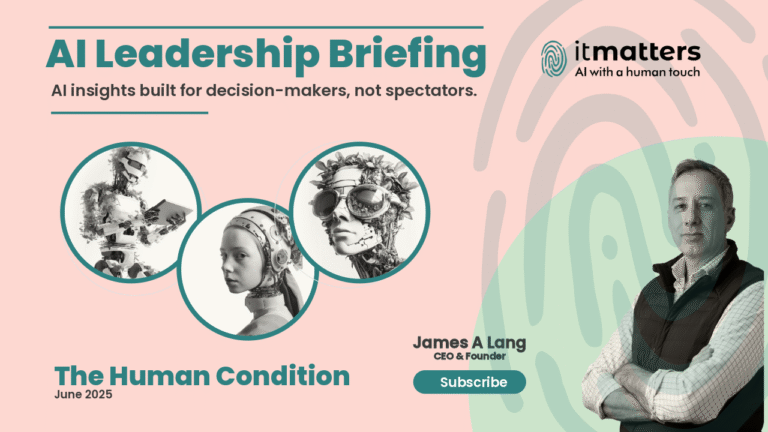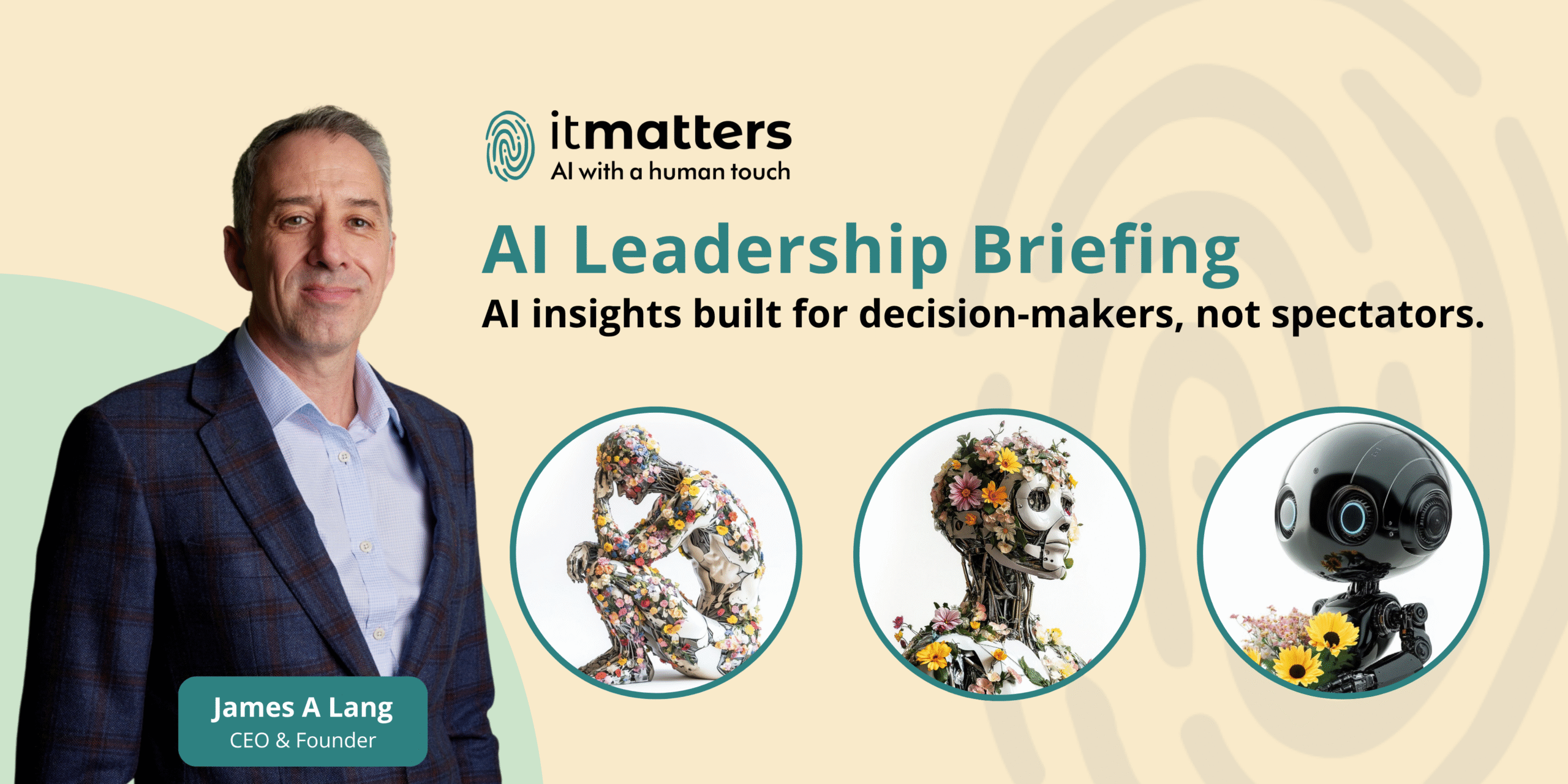The itmatters AI Leadership Briefing
AI insights built for decision-makers – not spectators.
Series: Week 4, June 2025 – Identity, Flaws, and the Myth of Perfection
Edition Date: Wednesday 25 June 2025
AI doesn’t need forgiveness. But you might.
As AI systems expand into high-stakes domains, the question becomes urgent:
When machines make decisions, who takes responsibility?
In industries like defense, finance, and law, where autonomous outputs shape human lives, the myth of the impartial algorithm gives cover to a deeper failure—the erosion of human accountability.
Reflective Human Insight
You can’t delegate blame.
And in a world of black-box AI systems, silence becomes complicity.
Accountability isn’t a backend protocol—it’s a front-line leadership issue.
Today’s Tactical Signals
1. US Air Force AI Drone Test Sparks Backlash After Misfire
An autonomous drone mistakenly targeted a simulated ally in a U.S. Air Force test, raising urgent questions about oversight and ethical boundaries in military AI.
Why it matters: Autonomous systems in defence require transparent accountability structures to prevent lethal ambiguity.
(Defense News, 2025)
2. Barclays AI Fraud System Wrongfully Flags Vulnerable Customers
Barclays faces scrutiny after its AI fraud detection system incorrectly flagged low-income customers, freezing access with no clear path to appeal.
Why it matters: Without human recourse, automated systems can punish the very people they aim to protect.
(Financial Times, 2025)
3. Singapore Court Confirms AI Cannot Be Held Liable—Only Operators
In a precedent-setting decision, a Singapore court ruled that liability for AI decisions rests solely with the deploying party, not the algorithm itself.
Why it matters: Legal clarity reinforces the need for human accountability, regardless of system autonomy.
(Straits Times, 2025)
4. Harvard Ethics Paper Proposes New Shared Accountability Models
A new paper from Harvard’s Berkman Klein Center recommends multi-layered responsibility frameworks for AI deployment, including designers, deployers, and oversight bodies.
Why it matters: Accountability must be shared—not blurred—across the AI development chain.
(Harvard Journal of Ethics & Technology, 2025)
5. EU AI Act Includes Clauses on Traceability for High-Risk Decisions
The EU’s finalized AI Act introduces mandatory traceability for decisions made by high-risk AI systems, especially in finance, healthcare, and law enforcement.
Why it matters: Traceability is foundational to trust, and essential for regulation, redress, and ethical governance.
(EU Parliament, 2025)
Field Note from the Future
It is 2031. A financial AI denies a loan.
No one—not the bank, not the dev team—can explain why.
When challenged, the system returns a confidence score.
No one apologises.
Why it matters for leaders:
AI accountability is no longer just a legal concern—it’s the bedrock of ethical AI governance.
In a world increasingly governed by autonomous decision-making, trust collapses when responsibility disappears.
Leaders must act now to embed traceability, redress, and transparency into every high-impact system. Because if no one is responsible, everyone is vulnerable.
AI decision transparency isn’t a nice-to-have—it’s the price of permission to operate.
Summary (Leadership Action)
Assigning accountability is no longer legal housekeeping—it’s a leadership act.
- Require traceability in all high-stakes AI decisions
Make audit trails and explainability non-negotiable in critical systems. - Build internal processes for redress and appeal
Ensure users can challenge, understand, and override AI outcomes. - Define accountability clearly across teams and systems
From design to deployment, assign responsibility with precision. - Train leaders to respond to failure—not deflect it
Responsibility walks hand in hand with capacity and power.
Historical Leadership Quote
“Responsibility walks hand in hand with capacity and power.”
— Josiah Gilbert Holland
Orders of the Day
Subscribe for tomorrow’s briefing: www.it-matters.ai
itmatters brings you the clarity, context, and credibility needed to lead in a shifting world.
Tomorrow’s Preview
What AI Still Gets Wrong About Being Human?



